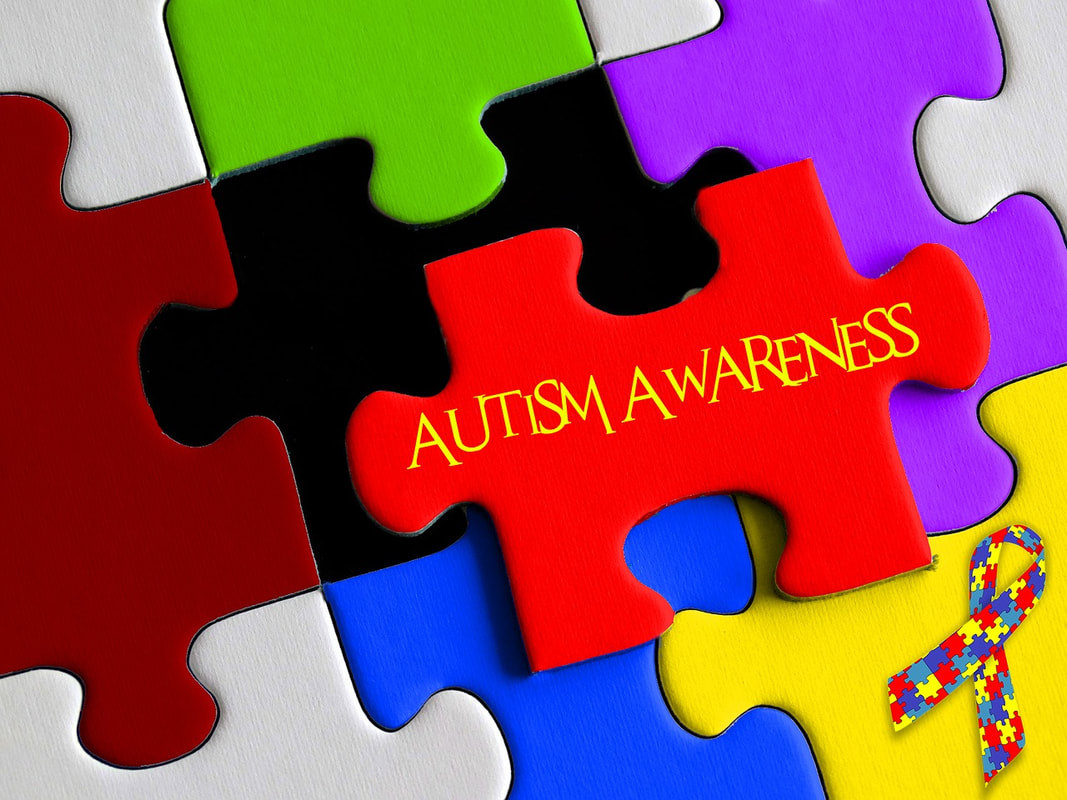 Guest Blogger: Emily Lowenfels, LCSW Take a moment…pretend there is a light shining in directly in your eyes and you have to look away. Or maybe you are walking through a lunch room and everyone is laughing but you don’t know why and aren’t in on the joke. Or you get scared of a bee that won’t leave you alone so you keep jumping/dancing/screeching until it flies away. Or imagine an alarm goes off in your office and it’s so loud you have to cover your ears and shut your eyes…. After imagining these things, you may now have an inkling of what it’s like to be on the Autistic Spectrum. I am a LCSW/therapist, with a practice focused on children, youth, young adults and their families. I have been in the helping field in some shape or form for almost 15 years. I didn’t always know that I would end up on the LCSW path, just like I didn’t know I would become so passionately enthralled by the Autistic community. Early on, while interning for my Music Therapy Bachelor’s degree, I was assigned to a low functioning Autistic classroom. I was young and judgmental and couldn’t understand the excitement of when one of the students lifted his finger and responded to a teacher’s question via an electronic device. I remember thinking, what is the value in this and why is everyone so excited for this individual who appears to have a low quality of life. What I failed to realize at the time, was that I bore witness to a momentous event in not only the boy’s life but also all those involved in his care and education. However, now I see this experience as a defining moment that led me down the path to becoming a therapist who specializing in developmental disorders, like Autism. While writing this piece, I have coincidentally been watching a show on Netflix called “Atypical” which showcases a teenage boy with Autism. The title is a play on the fact that individuals who do not have Autism are often referred to as “neurotypical.” If you want to see how a high functioning child with Autism experiences life, it does a pretty solid job of portraying the daily struggles in a realistic manner. However, it’s important to understand that not all individuals with Autism function in such a manner. There is much diversity within the Autistic community. One of the most fascinating things I have learned from working with such a special part of the human population is that Autism presents itself uniquely in every single individual diagnosed on the Spectrum. It still surprises me that each child (and adult) I have had the pleasure of meeting and or working with presents completely different, yet the collection of characteristics can be grouped together. Some of these characteristics may be: lack of eye contact, self-soothing techniques, being literal, and missing social cues. One of the signature characteristics of Autism is that lack of eye contact. An individual may never look at you when engaging in conversation or may look at you intermittingly but constantly looking away. A main way for individuals with Autism to self-sooth is to use a “stimming” technique which can present in so many ways. I’ve seen hand flapping, vocal stimming like humming, teeth grinding, yelling out or screeching, jumping, spinning… there are countless ways to stim. Another commonly known characteristic of Autism is being literal. If you were to make a comment to an individual with Autism, like “get out of here”, when hearing something amazing or unbelievable, he or she (or they) will take it literally and may walk out of the door. You may find yourself constantly clarifying your previous statements. The jackpot of Autism characteristics, is misunderstanding social cues. Individuals with Autism have a very difficult time relating to others in a typical fashion and may not read body language, your comments, and facial expressions appropriately. ASD can hinder one’s ability to discern when someone wants to be a friend or when someone is making fun of him or her (they). This is where I come in. As a Children & Family Therapist, I work with children through individual and group settings and provide parent support and counseling for children of special needs. Many of the groups I run are social skills focused and I utilize play therapy, creative arts, and just about any medium I can realistically provide in a session to help with engagement. It is my goal to take each individual’s uniqueness and nurture it within each session. Thank you for allowing me to share with you a glimpse of Autism. It is my hope that providing more awareness and understanding, that the stigma of Autism may change from being a gut wrenching diagnosis to one of more acceptance of human differences. Emily Lowenfels is an LCSW, Certified in Children, Youth, & Families, Lead Facilitator and owner of FIGURE 8 THERAPY CENTER in Morganville, New Jersey. To contact Emily here is her website www.figure8therapy.com and email [email protected].
9 Comments
|
AuthorROSE LAPIERE, LPC, RPT-S, ACS Archives
March 2020
Categories |

 RSS Feed
RSS Feed